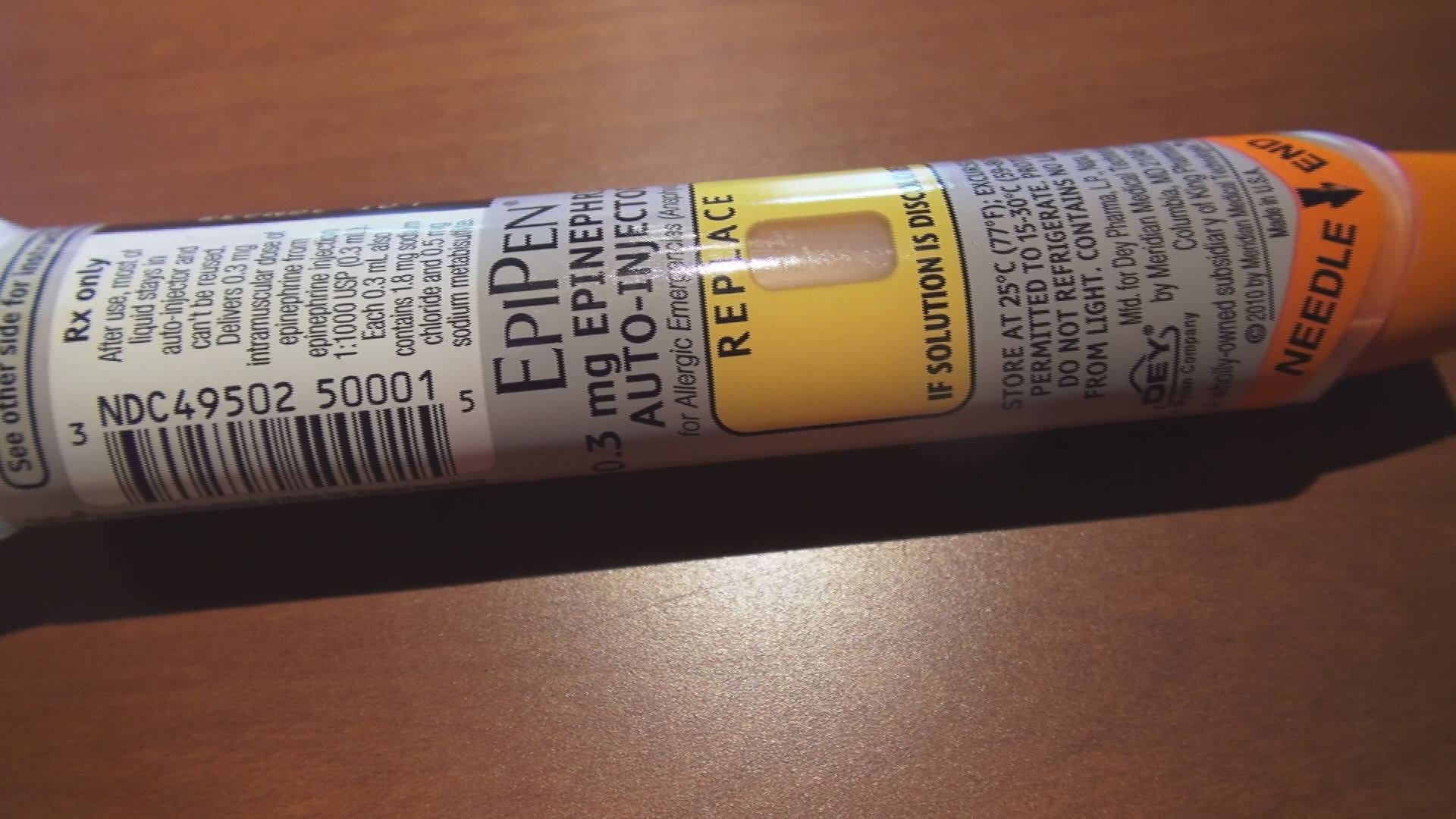Drugmaker Mylan (MYL) said Monday that it will offer a generic version of the life-saving allergy treatment EpiPen for half the list price of the brand name treatment after it became the center of a national controversy over skyrocketing drug prices.
The move marks a sharp shift after Mylan vigorously defended multiple increases that resulted in a list price of about $600 for a two-pack of the emergency injection treatment, up from about $100 in 2009.
"It's highly unusual for a generic product to come out in this way," Marianne Udow-Phillips, director of the Center for Healthcare Research & Transformation at the University of Michigan, said Monday in an email. "It clearly shows how much pressure Mylan was under. It's still a huge profit margin for them."
The move could be viewed as something of a preemptive strike by Mylan, which is facing the prospect of a generic competitor offered by rival Teva Pharmaceutical Industries. But the U.S. Food and Drug Administration dealt Mylan's competitor a sharp setback, saying it wasn't ready to hit the market and delaying the drug until at least 2017.
Mylan had hiked the price of EpiPen to maximize profits in anticipation of Teva's version, Udow-Phillips said.
The generic version of EpiPen "will be identical to the branded product, including device functionality and drug formulation," Mylan said in a statement. It will hit shelves within several weeks at a list price of $300 for a two-pack carton in dosages of either 0.15 milligrams or 0.30 mg, the company said. Mylan will continue to sell EpiPen and continue to offer a $300 discount to certain families that qualify for assistance based on their income levels, a solution the company announced last week to assuage the firestorm that had erupted over the dramatic increase in price.
"We understand the deep frustration and concerns associated with the cost of EpiPen to the patient, and have always shared the public's desire to ensure that this important product be accessible to anyone who needs it," Mylan CEO Heather Bresch said in a statement, calling the move an "extraordinary commercial response."
"Consumers should still hope for another generic manufacturer to compete with Mylan — true competition should bring costs to consumers and third-party payers down," Udow-Phillips said.
The announcement "seems like a bold move" that's "certainly good for PR," Evercore ISI analyst Umer Raffat said in a research note. But several questions linger, he said, including whether there will be enough supply and whether pharmacy benefit managers will supply the generic or whether Mylan will require patients to pay with cash.
After becoming immersed in controversy over sharp drug price increases, which has enveloped drug companies such as Valeant Pharmaceuticals and Turing Pharmaceuticals, Mylan took steps to offer discounts to families that needed financial assistance to afford EpiPen. EpiPen is used to treat sudden allergic reactions.
Bresch had blamed the "broken" health-care industry, saying that it "incentivizes higher prices" through a complex thicket of drug companies, insurers, health-care providers and pharmacy benefit managers.
But the price cut illustrates the unilateral pricing power that drug companies retain in certain instances.
"Because of the complexity and opaqueness of today's branded pharmaceutical supply chain and the increased shifting of costs to patients as a result of high deductible health plans, we determined that bypassing the brand system in this case and offering an additional alternative was the best option," Bresch said. "Generic drugs have a long, proven track record of delivering significant savings to both patients and the overall healthcare system."
It might not be enough to satisfy the company's critics.
Robert Weissman, president of consumer advocacy group Public Citizen, said in a statement that the "weirdness of a generic drug company offering a generic version of its own branded but off-patent product is a signal that something is wrong."
"In short, today’s announcement is just one more convoluted mechanism to avoid plain talk, admit to price gouging and just cut the price of EpiPen," Weissman said.
Public Citizen said that, together with allies, it will deliver petitions with more than 500,000 signatures calling for a price rollback.
Follow USA TODAY reporter Nathan Bomey on Twitter @NathanBomey.


